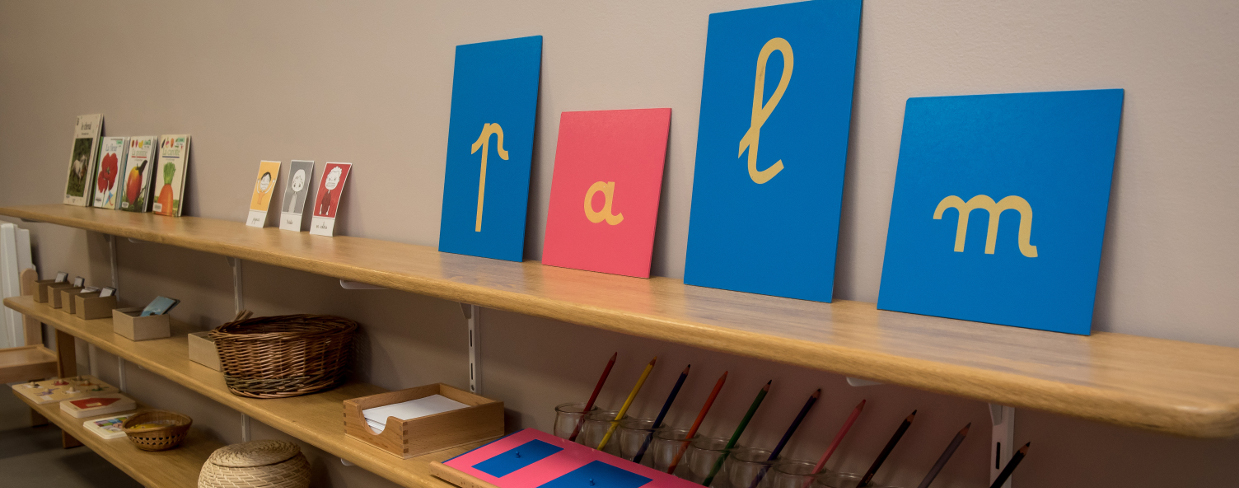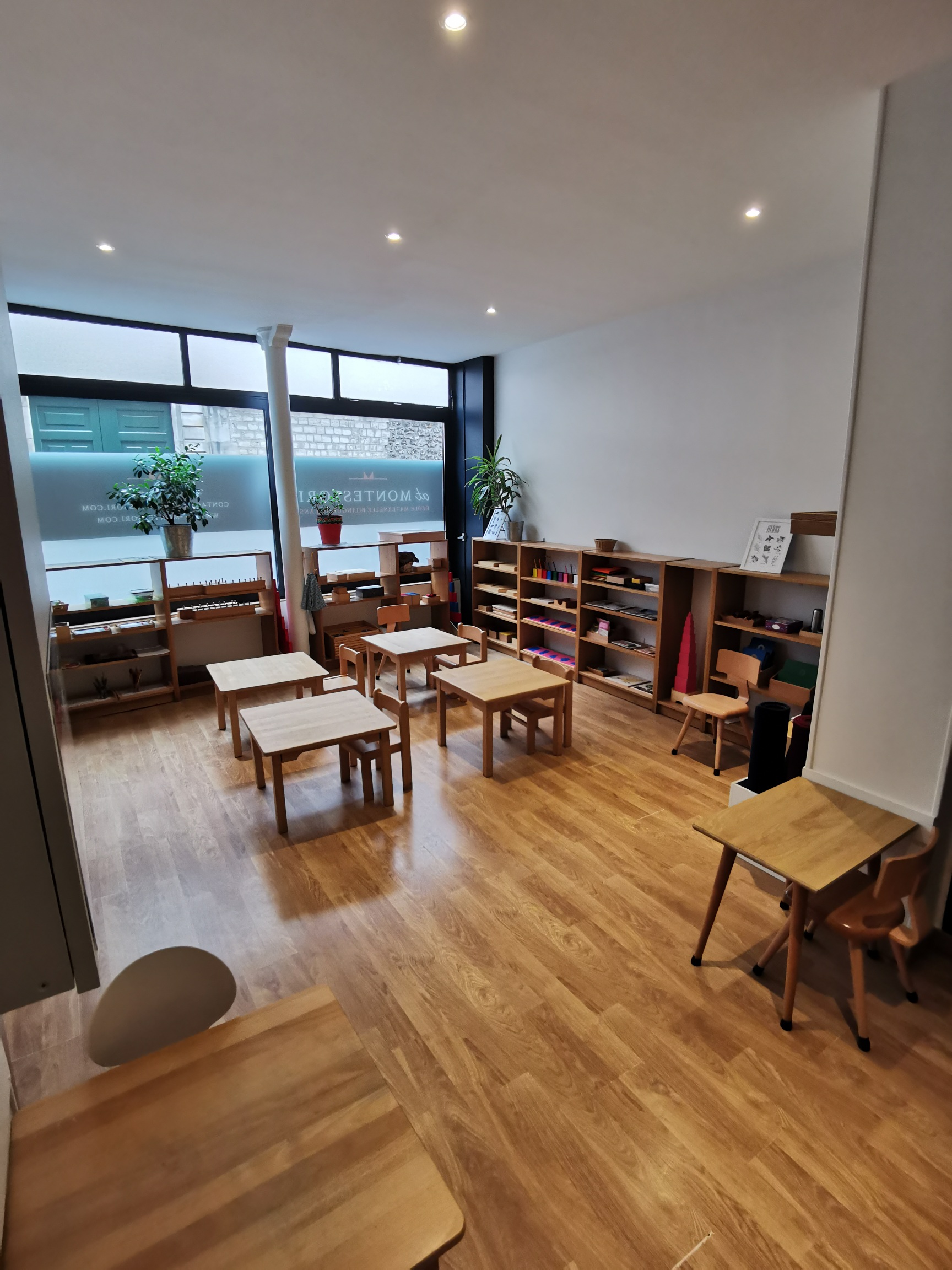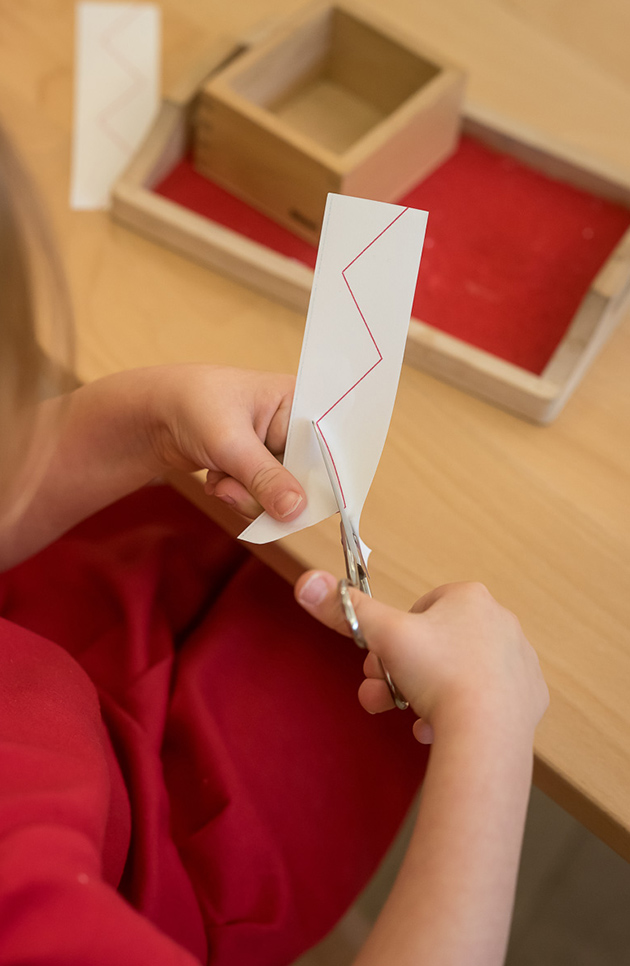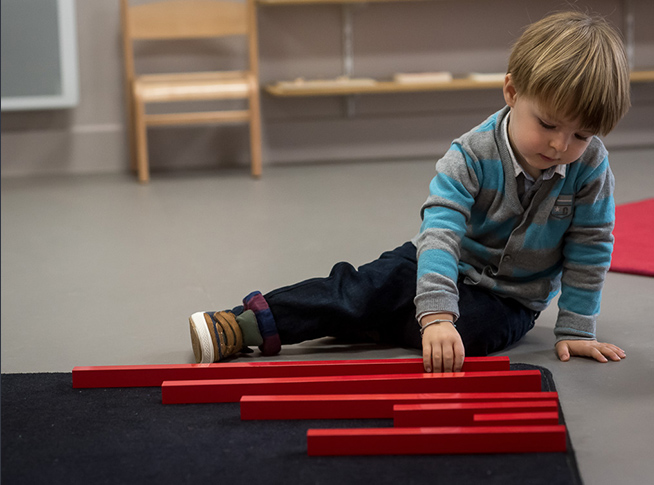The pedagogy


Understanding the pedagogy
Our mission is to provide a rich and warm educational environment that makes them want to go to school to learn, develop and affirm their personality. Our goal is to train educated, autonomous, curious children to be good citizens, children who are open to the world and who will become confident, happy and self-reliant adults.
The schools at Montessori are places of life on a human scale where the International Montessori Association certified teachers and native English-speaking teachers accompany the children every day in the development of their autonomy, their know-how and life skills in a caring environment. Thanks to a high staffing rate, the children benefit from an individualized education where they acquire solid fundamental knowledge while discovering the joy of learning and working.
This improves their self-esteem which will help them adapt to tomorrow’s world.
The schools at Montessori have been welcoming children for more that 15 years in bilingual classes implementing the Montessori pedagogy in a rigorous and demanding manner.
The Montessori pedagogy
For 3 years, the children will learn at their rhythm, guided by the teachers, and will therefore acquire the basic knowledge of the kindergarten cycle and beyond through experimentation, daily practice, and observation of their peers.
As a matter of fact, the mix of ages is a precious motivation, as the younger children have a strong desire to be like the older children, to imitate their older peers. The older children find great satisfaction in helping the younger children, in collaborating with them and therefore realize how far they have come themselves. They become aware of what they have learned and become very involved in the life and organization of the class by signing up on the daily responsibilities chart.
The Montessori activities are organized around four areas designed to meet specific pedagogical objectives.
The Practical Life area reinforces concentration, motor skills and overall coordination; it is preparatory for the Language area that will develop not only oral skills but writing skills by learning to write and being introduced to reading. The Sensory area, through the handling of materials requiring observation and a logical mind, favors the passage from experimentation to abstraction; it is preparatory to the Mathematics area, which allows children to learn to count and enumerate, to understand the functions of operations and the formation of large numbers.
Thanks to the liberty to choose their activity, the children work happily… and we learn so much better when we enjoy what we are doing!
Bilingual and International classes
The sensitive language period between 0 and 6 years and the child’s absorbing mind, key concepts developed by Maria Montessori, allow young children to learn languages with great ease.
In our schools at Montessori, English is used daily with the English-speaking teacher who concentrates on the development of oral comprehension and expression by using fun activities.
Our classes are very international, with more than half of the children having a language other than French in their home, promoting openness to foreign languages in general and to English in particular.
Educational follow-up
The activities practiced by each child and their learning process are very individualized.
Meetings are scheduled with each family in the fall and spring, with an annual written report starting the first year.

In at Montessori schools in Paris, we practice bilingualism by immersion from an early age.


